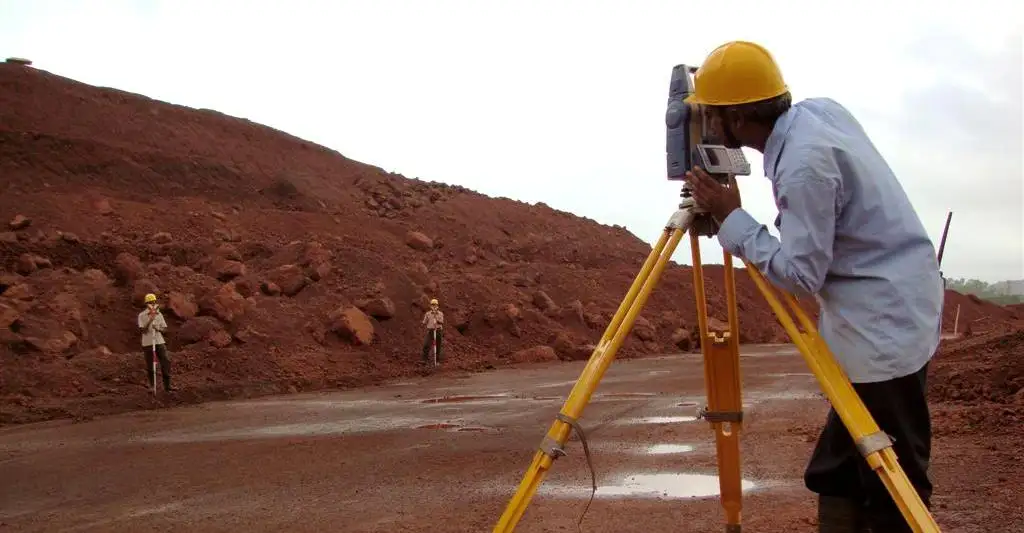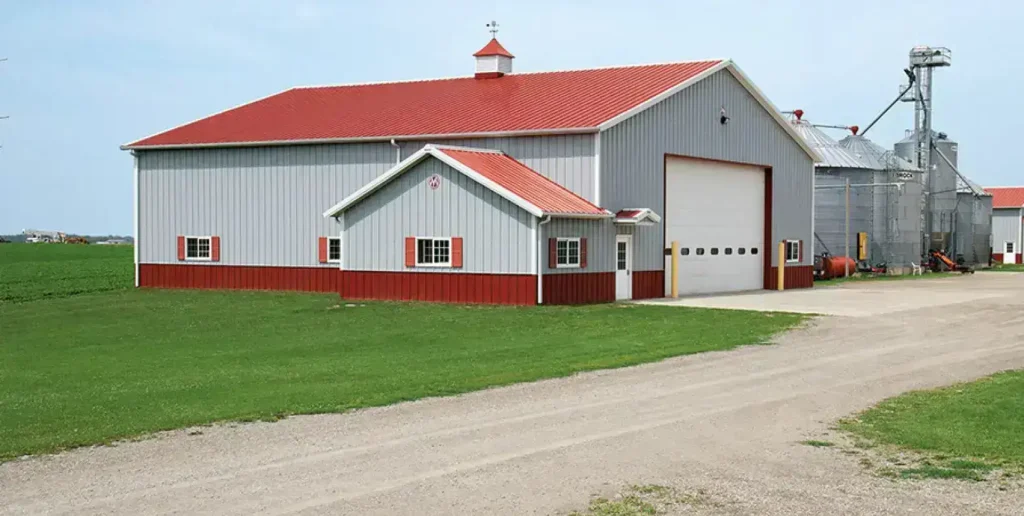A land survey is a significant process that assists in establishing the precise boundaries of a property. It gives you accurate measurements and can detect any problem with the land, including zoning or easements. If you are purchasing, selling, or developing land, a survey is necessary. The price of a land survey can differ depending on various factors.
On average, land survey cost range from $475 to $2,300. But the ultimate cost will vary with the size of the property, where it is located, and what kind of survey you require. More complex or larger surveys will be more expensive. Knowing these variables will assist you in budgeting for a land survey.
What is a land survey?

A land survey is a professional measurement of the boundaries of a property. A certified land surveyor uses specialized equipment to stake the corners and boundaries of your property, producing a map that indicates your land’s precise size and shape. The map is an official document and can be utilized in many circumstances, such as purchasing or selling a house, resolving property disputes, and designing construction projects like fences, houses, or additions.
Why Do You Need a Land Survey?
You may require a land survey for various purposes, such as:
- Buying or selling real property: A survey confirms the property’s legal description is the same as its physical boundaries.
- Building Project: Whether building a fence, a new house, or an addition, a land survey ensures precise measurements to prevent boundary conflicts or code infractions.
- Refinancing and mortgage: Lenders may insist on a land survey before loan approval to ensure the property’s size and location.
- Setting property disputes: In case you don’t know exactly where your boundaries are, a land survey sets matters straight and might even help avoid any potential legal headaches.
How Much Does a Land Survey Cost?
The survey price could depend on several aspects, including the type of survey you need, the size of the property, and where you live. On average, homeowners pay between $380 and $750 for a land survey. The final survey cost may vary based on the specific situation.
Average Cost Range for Different Types of Surveys
Here’s a breakdown of the typical costs for different types of land surveys:
- Boundary Survey: $150-$700. This is the survey that determines the limits of your property, which is very important when purchasing a house or planning construction close to property lines.
- Mortgage Survey: $350-$650. This is a survey that lenders usually ask for before they grant a home loan to show the property boundaries and the location of buildings.
- Fencing Survey: $250-$800. This survey ensures that fencing is placed exactly on your boundary demarcation without infringing on the land of the neighbor.
- Topographical Survey: $500-$1,200. Revealing naturally and artificially built features of the land, including slopes, trees, roads, and buildings.
- Subdivision Survey: $350-$1,500. If you are splitting a large property into smaller lots, this survey will help define the boundaries on each lot.
- ALTA Survey: $1,200 to $3,000. This thorough survey commonly asked for with commercial properties states the information on the boundaries and topography, among others.
Are There Any Other Land Survey Costs To Consider?

There are a few other factors that can influence land surveying costs, some of which you may want to consider to prevent any gradual increase in costs:
- Documentation Costs: Should the surveyor be required to prepare any documents or reports to be submitted to lenders, title companies, or government agencies, this could cost $50-$150 an hour.
- Boundary Adjustments: Should existing survey records prove outdated or in error, it is the surveyor’s responsibility to correct boundary lines. This could cost between $25 and $75.
- Land preparation: Where land has been difficult to access or clear (such as stump removal or clearing), the other costs could range from $250 to $2,415 based on the severity of the work involved.
What factors affect the cost of a land survey?
Several factors can influence the price of a land survey. It’s important to consider these factors when budgeting for your survey:
1. Survey Type
Surveys belonging to different types affect the total expense. A boundary survey will be more affordable than an ALTA survey, which commercial properties typically require. Knowing the survey type you require helps to determine the expenses and prevents extra fees for unwanted service components.
2. Property Size
The magnitude of your property land creates a substantial impact on the overall expense of a surveying procedure. The total cost of surveying land becomes higher when land extent grows bigger.
Property size affects the surveying costs in general through the following expense tiers:
| Acreage | Price Range |
| 1/5 acre | $350 to $600 |
| 1/2 acre | $400 to $700 |
| 1 acre | $500 to $1,000 |
| 5 acres | $500 to $1,500 |
| 10 acres | $1,000 to $2,000 |
| 25 acres | $2,000 to $5,000 |
| 100+ acres | $3,000 to $10,000 |
3. Lot Shape
The overall price will depend significantly on the form of your property space. A survey for regular-shaped properties, including rectangles, will usually cost less than other properties. Surveying costs rise when you have multiple-sided properties that deviate from regular shapes during the survey process.
- Rectangular lots: $380 to $750
- Irregular lots: $580 to $950
4. Location
Where you live can also affect the price. For one, metropolitan areas would have probably high prices when it comes to surveying since these are places where the cost of living is higher and where the demand for surveying services also increases. Alternatively, for rural areas, surveying prices would be less as there are very few demands for surveys.
- Rural areas: $350 to $650
- Suburban areas: $400 to $800
- Metropolitan areas: $550 to $1,100
5. Terrain and Landscape Features
Natural and topographical features within the property create additional challenges for surveying tasks, leading to a longer survey duration. Surveying properties with hilly terrain and stream crossings or big trees will lead to additional expenses.
- Flat land: $500 to $1,000
- Hilly or rough terrain: $950 to $1,450
6. Research Time
Surveyors require additional research to establish property boundaries whenever record information exists inaccurately or is absent. The required research duties push up the total expenses of the surveying project.
- Regular survey: $380 to $750
- Research-intensive survey: $1,380 to $1,750
How Can You Save Money on a Land Survey?
The requirement of land surveys demands necessary expenses that the landowner can manage through cost-controlling approaches. Follow these steps to reduce expenses when getting your land survey completed.
1. Know What You Need
Ask the surveyor to determine your survey requirements before you start working together. Your need to establish boundary determination requires only basic property boundary surveys since topographic surveys or ALTA surveys would be unnecessary expenses.
2. Get Multiple Quotes
It is essential to obtain price estimates from at least three distinct surveyors because this helps you secure affordable rates. Find survey companies by first comparing their costs together with their professional background and customer evaluations before settling on one.
3. Ask for Referrals
Your real estate agent should recommend dependable surveyors since they help clients with property transactions. Getting referrals can lead to discounted rates for survey services from the companies that offer such discounts.
4. Collaborate with Neighbors
Residents who have joint boundaries with neighbors can distribute survey expenses together to obtain survey documents. The survey process will become more convenient when you and the other party both obtain copies while preventing conflicts between properties.
5. Do Some Research Yourself
It is useful to research historical documents related to your property together with previous survey information when possible. Studying recorded documents at the local office enables you to cut down the surveyor’s workload, thus potentially decreasing your expenses.
Is a DIY land survey a good idea?
While it might be tempting to measure your property, doing so is not recommended, especially if you plan on building or making changes to your property. A DIY survey is unlikely to hold up in court if a dispute arises, and it’s difficult to get accurate results without the proper tools and expertise. Even minor mistakes can lead to costly consequences, like having to move a fence or demolish a building.
In most cases, hiring a professional land surveyor is the safest and most cost-effective choice. Surveyors are licensed, insured, and experienced in navigating the legal and technical aspects of land surveying. They’ll ensure that your property boundaries are marked correctly and provide the legal documentation you need.
How to Hire a Land Surveyor
When hiring a land surveyor, look for someone who is licensed and insured. Check their credentials, ask about their experience with the specific type of survey you need, and read reviews from previous clients. It’s also a good idea to get multiple quotes to compare prices.
Once you’ve found a surveyor you’re comfortable with, make sure to discuss the details of the job, including the price, timeline, and any additional fees. A clear contract will help avoid misunderstandings down the road.
Conclusion
A land survey is a valuable service that can save you time, money, and legal headaches down the road. The cost of a land survey may vary, but understanding the factors influencing survey price will assist you in budgeting and avoiding surprises. Whether buying a house, putting up a fence, or planning for a massive construction project, hiring a professional land survey is an extensive step in ensuring that everything goes smoothly.
By knowing what to expect and taking steps to save money, you can get the accurate and reliable survey you need without breaking the bank.
FAQS
Q1. What is the cheapest type of land survey?
A boundary survey is the least expensive of the surveys. It ranges from $150 to $700 in cost. This type of survey helps in the delineation of property lines and in many cases suffices for the average homeowner.
Q2. What is a survey fee?
A survey fee is the cost that you have to pay in exchange for the services of a land surveyor. The fee covers measuring, mapping, and documenting property boundaries. The amount depends on what kind of survey is undertaken.
Q3. Which type of land survey is usually the most expensive?
An ALTA survey is the most costly. Usually, it ranges from $1,200 to $3,000. It is mostly used by commercial properties as it provides detailed features present in a land area.
Q4. What is the best land survey method?
The best survey method for you certainly depends on your requirements. For simple identification of property boundaries, the best solution would be boundary surveys. For more complex work, perhaps a topographical or ALTA survey is required.


